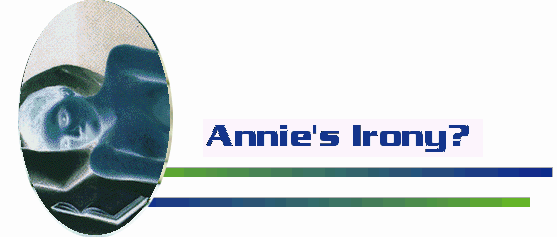




Centuries of servitude have to be shucked; but there is no history, only the history of emotion. Pubescent ignorance comes into the light, a shy girl, eager to charm, and one's instinct is savage: to violate that ingenuousness, to degrade, to strip her of those values learnt from films and books because she too moves in her own hallucination: that of a fine and separate star, while her counterpart, the actor, sits watching, but he sits next to another hallucination, a doppelganger released from his environment and his race. Their simplicity is really ambition. Their gaze is filmed with hope of departure. The noblest are those who are trapped, who have accepted the twilight. (5)

. . . if we had asked
why Jane Austen's people
carouse all day
and do no work
would Europe in Africa
have stood
the test of time?
and would she still maulThe poem provides an answer to this question in the penultimate stanza, where the speaker confesses in no uncertain terms that "Eng. Lit." is "more than a cruel joke--/it was the heart/of alien conquest."
the flower of our youth
in the south?
Would she?
Your elegance of deceit,
Jane Austen,
lulled the sons and daughters
of the dispossessed
into a calf-love
with irony and satire
around imaginary people.
While history went on mocking
the victims of branding irons
and sugar-plantations
that made Jane Austen' people
wealthy beyond compare!

To respond to issues raised in this article, post a messge to the Jouvert Forum: Post a Message
To view the responses go to the Jouvert Forum: Discussion Page
Notes
[I would like to thank the course director of English 2370.06: Postcolonial Literature, Frank Birbalsingh, as well as Julie Carnie-Richardson and Neeta Singh, for sharing their insights and experiences with me throughout the year. I would also like to thank Pat Rogers of the Centre for Support of Teaching at York University for helping me work through the issues and arguments presented in this paper during her faculty seminar on University Teaching and Learning. This essay was partially funded by the Social Sciences and Humanities Research Council of Canada.]
Former Preseident of the Modern Languages Association of America, Biddy Martin, has addressed this methodological divide in her editor's introduction to a recent issue of PMLA. She suggests that "the tensions between the political and poetic dimensions of culture and those between the subjective and objective aspects of reading must be kept alive--and the shifting boundaries between those dimensions and aspects analyzed--no matter what changes occur in the field of literary studies" (8). Back
My list of critical terms included allegory, allusion, defamiliarization, irony, metaphor, picaresque, and satire, to name a few. Along with it I circulated a handout listing "Themes and Motifs: Keywords" such as colonization, diaspora, empire, hybridity, identity, multiculturalism, nation, negritude, race, regionalism, settler and non-settler colony. Back
Brower's essay was originally published in 1959. It was reprinted in a useful collection of essays on textuality and literary history called In Defense of Reading. His argument, which derives from I. A. Richards' "practical criticism," is that teachers and students of literature must proceed "by slowing down the process of reading to observe what is happening, in order to attend very closely to the words, their uses, and their meanings" (4). Back
My summary here owes much to Brower's work but more so to Paul de Man's essay "The Return to Philology," which commemorates Brower's Harvard undergraduate course on "The Interpretation of Literature." De Man recounts how his own "awareness of the critical, even subversive, power of literary instruction does not stem from philosophical allegiances" but from the experience of Brower's course. "I have never known a course by which students were so transformed," de Man writes (The Resistance to Theory 23). More recently, this concept of "slow reading" has been articulated alongside some pressing issues in Cultural Studies by Geoffrey Hartman in "The Fate of Reading: Once More." Back
On a number of occasions over the course of the year, I presented this distinction to my class by citing two helpful passages. The first is from J. M. Blaut's book, The Colonizer's Model of the World: "the really crucial part of Eurocentrism is not a matter of attitudes in the sense of values and prejudices, but rather a matter of science, and scholarship, and informed and expert opinion. To be precise, Eurocentrism includes a set of beliefs that are statements about empirical reality, statements educated and usually unprejudiced Europeans accept as true, or propositions supported by 'the facts'" (9). The second passage, which revolves around theoretical conceptions of racism in Afro-American culture, is from bell hooks' Yearning: Race, Gender, and Cultural Politics: "racism is perpetuated when blackness is associated solely with concrete gut level experience conceived as either opposing or having no connection to abstract thinking and the production of critical theory. Back
My thinking here is indebted to Paul de Man's argument in his essay "The Resistance to Theory," namely that "ideology is precisely the confusion of linguistic with natural reality" (11). Back
It is useful to note that Walcott uses the following quote from Jean-Paul Sartre's Preface to The Wretched of the Earth as an epigram to Part One of "Dream on Monkey Mountain": "Thus in certain phychoses the hallucinated person, tired of always being insulted by his demon, one fine day starts hearing the voice of an angel who pays him compliments; but the jeers don't stop for all that; only from then on, they alternate with congratulations. This is a defence, but it is also the end of the story. The self is disassociated, and the patient heads for madness" (19). Back